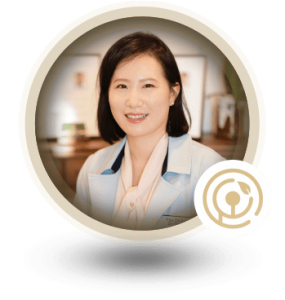Introduction:
Endometriosis is a challenging and often painful condition that affects millions of women worldwide. While modern medicine offers various treatments, some women seek alternative solutions to manage their symptoms. Chinese herbal medicine, a vital aspect of traditional Chinese medicine (TCM), has gained attention as a potential natural remedy for endometriosis. In this blog, we’ll delve into the principles of Chinese herbal medicine and its potential benefits in alleviating the symptoms of endometriosis.
Understanding Endometriosis
Begin by explaining what endometriosis is and how it affects women’s reproductive health. Highlight the common symptoms, potential causes, and challenges in diagnosing the condition. Mention that endometriosis treatment often involves pain management, hormone therapy, or surgery.
Chinese Herbal Medicine – An Ancient Healing Tradition
Introduce Chinese herbal medicine, an integral part of TCM, which dates back thousands of years. Discuss the philosophy behind TCM, including the concepts of Yin and Yang, Qi, and the balance of the body’s energy. Explain how Chinese herbal medicine aims to restore harmony and promote wellness through a holistic approach.
Chinese Herbal Medicine and Endometriosis
Explore how Chinese herbal medicine approaches endometriosis treatment. Highlight the belief that imbalances in the body’s energy can contribute to the development of endometriosis. Discuss how Chinese herbs are used to address these imbalances and potentially alleviate symptoms like pelvic pain, heavy menstrual bleeding, and infertility.
Scientific Studies and Evidence
Present relevant research and studies that have investigated the effects of Chinese herbal medicine on endometriosis. While the research landscape may be limited, include any promising findings that support the potential benefits of these herbs. Acknowledge the need for further research to establish the efficacy of Chinese herbal medicine for endometriosis definitively.
Common Chinese Herbs for Endometriosis
List and describe specific Chinese herbs commonly used in TCM for endometriosis. Explain their purported effects, such as reducing inflammation, regulating hormonal imbalances, and promoting blood circulation in the pelvic region. Include herbs like Dong Quai (Angelica sinensis), Bupleurum root (Bupleurum chinense), and Chinese Peony (Paeonia lactiflora).
Seeking Professional Guidance
Emphasize the importance of consulting a qualified TCM practitioner or herbalist before starting any herbal treatment. Each woman’s condition is unique, and a personalized approach to herbal medicine is crucial to achieving the best results. Discuss the significance of combining Chinese herbal medicine with other treatments or lifestyle changes under the guidance of healthcare professionals.
Safety and Considerations
Address safety concerns related to Chinese herbal medicine, including potential interactions with other medications and possible side effects. Stress the importance of disclosure to healthcare providers about any herbal remedies being used. Provide guidance on reputable sources for obtaining quality Chinese herbal products.
Conclusion:
Chinese herbal medicine offers a natural and holistic approach to managing endometriosis symptoms. While more research is needed to establish its effectiveness definitively, many women have reported positive outcomes from incorporating these herbs into their treatment plan. If you’re considering Chinese herbal medicine for endometriosis, consult a knowledgeable TCM practitioner to create a personalized treatment approach that complements your overall health and well-being. Remember, finding the right balance between traditional and modern medicine can lead to a more comprehensive and effective management of endometriosis symptoms.






